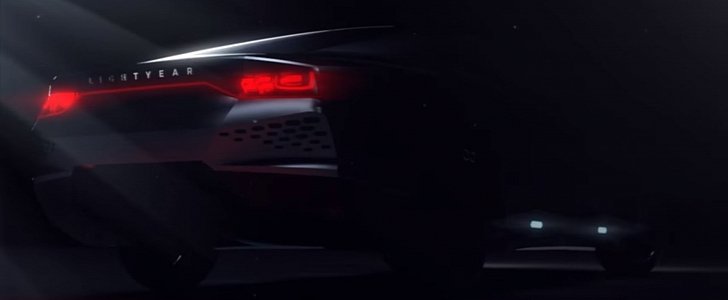EVs have a lot of things going on for them: they have zero tailpipe emissions, they make very little noise, they are easier to maintain, and they can offer superb dynamic performance.
And yet what's probably the greatest thing about them is that they carry the promise of cost-free mobility. If you could produce electricity in your backyard, you would essentially be able to drive the car around without ever having to pay for fuel. It would be like having an oil field, a refinery, and a gas station all on your property.
Of course, some initial investment would be required, and it wouldn't be a cheap one. Wind turbines are notoriously expensive, and so are the battery packs that make sure you have power when the wind takes a break. And it's the same with solar power.
But a group of former students in Holland believes that they can make things even better. They suggest the car might be able to charge itself, without any of the infrastructure mentioned before. And no, they're not crazy.
The five people behind the Lightyear startup are all graduates of the Technical University of Eindhoven, but more than that, they were all involved in the Solar Team Eindhoven. This project resulted in a vehicle called Stella Lux which was an energy positive solar car. That meant it could produce more energy than it needed to travel thanks solely to the solar panels on the roof.
Now, though, the group of five has the ambition to come up with a commercial application for the technology, and they've named it the Lightyear One. Obviously, a road-legal vehicle will never be able to generate all the power it needs to move, let alone more of it, but the team says its panels mounted on the car will be able to cover between 10,000 and 20,000 kilometers (6,200 and 12,400 miles) worth of travel every year.
"The Lightyear One charges itself with clean solar power. In sunny conditions it can drive for months without charging, a truly unique capability. The battery stores energy to ensure you can drive at night. It offers great peace of mind."
It's a big claim, but if anyone has the knowledge and experience to do it, then it has to be these guys. The team has big plans already, and they're not that far away. The first production run limited to 10 'Signature' units is scheduled for 2019, with 100 more cars to follow the next year.
The price is estimated at €119.000 (about $136,000), and the team is already taking refundable deposits. Unlike other companies, though, which only require a modest sum (like Tesla's $1,000 for the Model 3, for example), Lightyear will expect a full €19.000 (roughly $22,000).
All we have so far in terms of visuals is this teaser video that doesn't exactly have the kind of quality you would expect from a startup that plans to sell cars that cost well over $100,000. The vehicle itself, though, looks pretty interesting with a retro design and a body covered in solar panels. Repair costs should be a bitch, though.
Of course, some initial investment would be required, and it wouldn't be a cheap one. Wind turbines are notoriously expensive, and so are the battery packs that make sure you have power when the wind takes a break. And it's the same with solar power.
But a group of former students in Holland believes that they can make things even better. They suggest the car might be able to charge itself, without any of the infrastructure mentioned before. And no, they're not crazy.
The five people behind the Lightyear startup are all graduates of the Technical University of Eindhoven, but more than that, they were all involved in the Solar Team Eindhoven. This project resulted in a vehicle called Stella Lux which was an energy positive solar car. That meant it could produce more energy than it needed to travel thanks solely to the solar panels on the roof.
Now, though, the group of five has the ambition to come up with a commercial application for the technology, and they've named it the Lightyear One. Obviously, a road-legal vehicle will never be able to generate all the power it needs to move, let alone more of it, but the team says its panels mounted on the car will be able to cover between 10,000 and 20,000 kilometers (6,200 and 12,400 miles) worth of travel every year.
"The Lightyear One charges itself with clean solar power. In sunny conditions it can drive for months without charging, a truly unique capability. The battery stores energy to ensure you can drive at night. It offers great peace of mind."
It's a big claim, but if anyone has the knowledge and experience to do it, then it has to be these guys. The team has big plans already, and they're not that far away. The first production run limited to 10 'Signature' units is scheduled for 2019, with 100 more cars to follow the next year.
The price is estimated at €119.000 (about $136,000), and the team is already taking refundable deposits. Unlike other companies, though, which only require a modest sum (like Tesla's $1,000 for the Model 3, for example), Lightyear will expect a full €19.000 (roughly $22,000).
All we have so far in terms of visuals is this teaser video that doesn't exactly have the kind of quality you would expect from a startup that plans to sell cars that cost well over $100,000. The vehicle itself, though, looks pretty interesting with a retro design and a body covered in solar panels. Repair costs should be a bitch, though.





